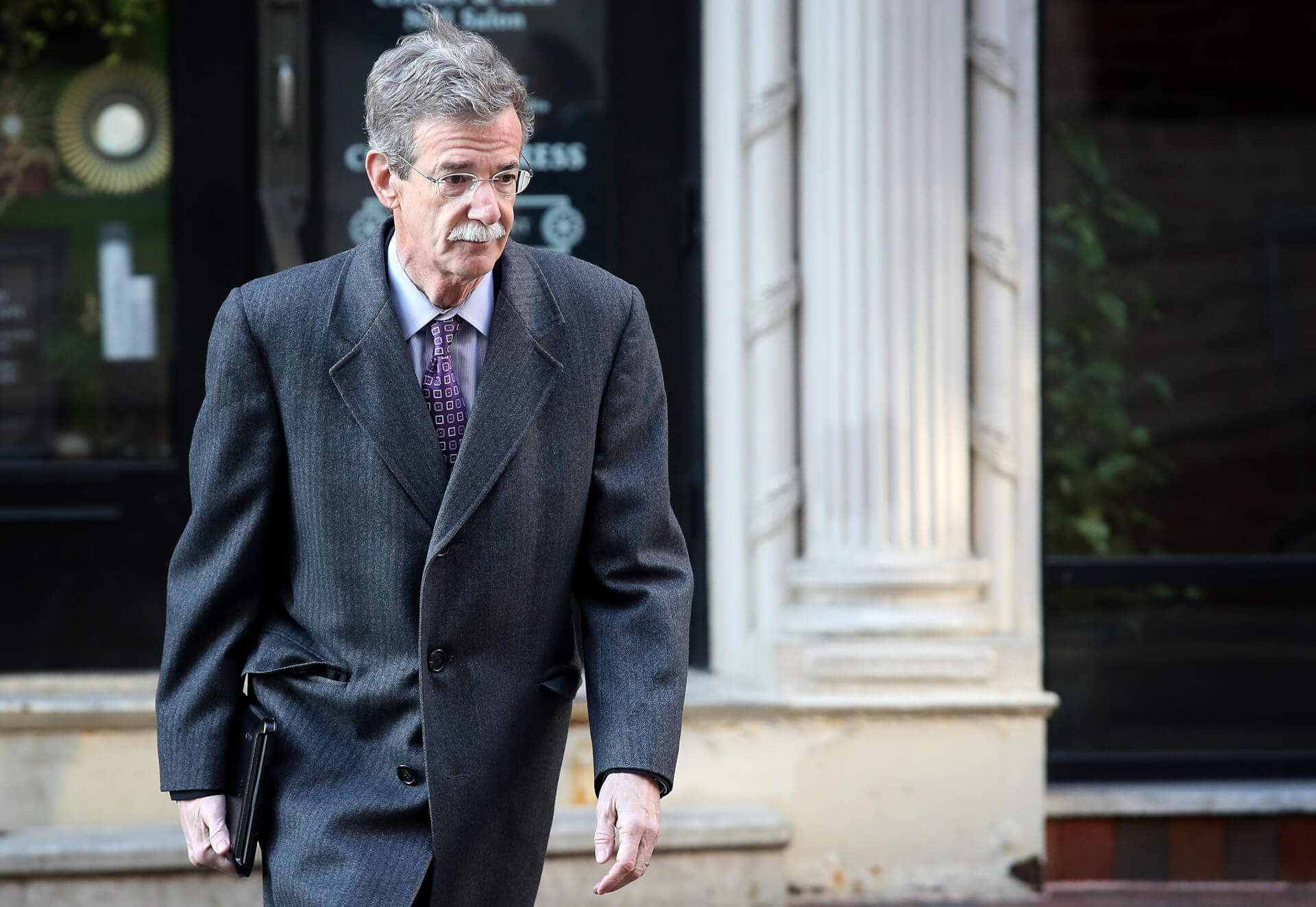Frosh Reflects on Battles With Trump and Hogan, His Upbringing, and His Decision to Depart

When Brian E. Frosh was sworn in as attorney general in 2014, he knew that the role would bring him into direct combat with criminals, scammers, drug lords, and those who prey on the vulnerable.
But he never dreamed that he would end up going toe-to-toe, repeatedly, with a president engaged in policies that — in the eyes of Frosh and other Democratic state attorneys general — were corrupt, discriminatory or illegal.
Over his seven years as the “people’s lawyer,” as the Montgomery Democrat described himself in a Thursday interview, Frosh and other AG’s were in court a lot — defending the Affordable Care Act and seeking to block the “Muslim ban,” the mistreatment of children at the U.S.-Mexico border and various climate policies, among others.
In addition, Frosh and Washington, D.C. Attorney General Karl Racine (D) sued the White House over the administration’s funneling of taxpayer dollars to Trump-owned properties.
“I thought that was extraordinarily important work. I was very happy to be able to play a role in thwarting many of his policies,” Frosh said. “I don’t think we had any idea of the depth of Trump’s corruption when we started the emoluments case.”
The president’s many critics expressed gratitude to Democratic AG’s for their willingness to take Trump on. Many Republicans, including Gov. Lawrence J. Hogan Jr., frequently accused Frosh of focusing too much on national politics.
“While it’s not the kind of thing you want to see happening, I was glad I didn’t have to sit on the sidelines,” the attorney general said of the Trump years. “I would have been tearing my hair out.”
After announcing his decision not to seek a third term next year, Frosh reflected on his tenure, highlighting several of the legal battles he’s engaged in since 2015, fights that generally drew far less attention than his scrapes with the president.
Frosh said he’s proud of his efforts to reform the state’s bail process, so that people who have been charged — but not yet convicted — of a crime don’t spend time in jail solely because they can’t afford bail.
People who don’t have the money to pay traffic fines can no longer have their drivers licenses suspended, a sanction that hits lower-income workers profoundly because it impacts their ability to earn a living.
He described his fight to block a nursing home chain from operating — and to reform the state’s laws — after the company was accused of “dumping” vulnerable patients far from home without proper care or advance notice.
And he discussed efforts to curb companies in the “structured-settlement industry” from taking advantage of consumers by essentially swindling them out of lump-sum payments that they are due.
Frosh said he intends to work hard over the last 15 months of his term.
“I think I still have a lot to contribute, and the pedal is going to be to the metal for the rest of my term as attorney general,” he told WTOP.
Despite successes which have earned him praise from other elected leaders and a 35-year unbeaten streak (28 years as a legislator and seven as A.G.), Frosh has been criticized by advocates for victims of the church child sex abuse scandal.
He said Thursday that work in that area continues, even though he is unable to provide many details.
“We do not comment on investigations that are in progress,” he said. “It’s public that we’re investigating the Catholic Church. But we’re working hard in every area of our responsibility. While some things take longer than we like, we carry them through to the end, and that’ll be the case in that arena as well.”
Frosh said he was influenced at a young age by his father, an attorney who — as a member of the Montgomery County Council in the late 1950s and early 1960s — sought to enact the county’s first public accommodations ordinance.
The measure was controversial. On the campaign trail one day, a man poked his finger in the councilmember’s chest and said, “I wouldn’t vote for you if you were the last person on earth.”
“He also said — and I’m paraphrasing — ‘You are an African-American-loving Jew,’” Frosh recalled.
“My father lost the [1962] election over the public accommodations ordinance and other progressive stuff that he did, but those stories ignited passion for the kind of work that I’ve been doing for the last 35 years.”
When Treasurer Nancy K. Kopp (D) announced her decision to retire earlier this week, Hogan praised her repeatedly, and he presented her with a governor’s citation at Wednesday’s Board of Public Works meeting.
Hogan made no public comment about Frosh’s decision to move on. The slight was a reflection of their many clashes and frosty relationship.
“We don’t agree on a lot of stuff,” Frosh acknowledged, “but I think we’ve given him the best possible legal advice.”
The attorney general, who just turned 75, said he intends to remain active “in the areas that I’m most passionate about — poverty, environment and some others.”
But he decided not to seek a third term to avoid “staying past my sell-by date.”
“We all lose a step,” Frosh said. “I just didn’t want to see myself start to decline or have somebody tell me, ‘Time’s up.’”





 Creative Commons Attribution
Creative Commons Attribution